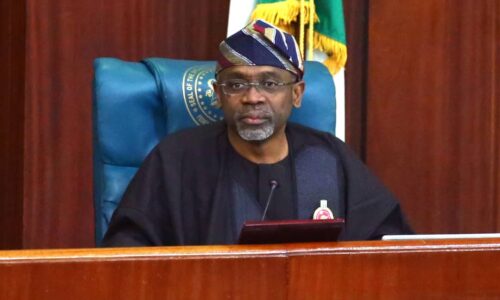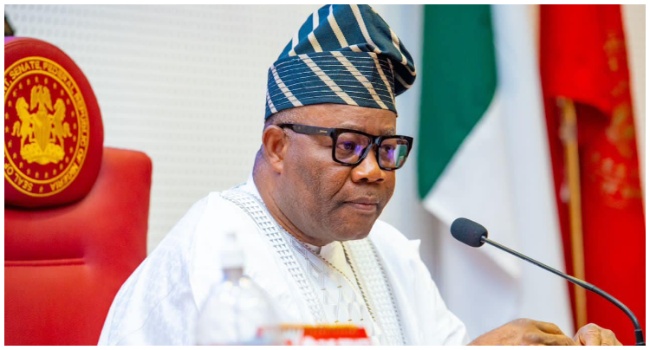Reps to Review Electoral Offences Act Over Poll Violence

The Speaker of the House of Representatives, Femi Gbajabiamila, has said the parliament will revisit laws on the prosecution of electoral offenders as well as those that will encourage more women participation in politics and governance.
Gbajabiamila made this known in his opening address at the plenary on Tuesday, as the National Assembly resumed from 2023 general elections break.
The Speaker said, “As a necessary first step, the Independent National Electoral Commission should collaborate with stakeholders to conduct a meticulous assessment of the election process. This is necessary to inform further reforms and improvements.
“The Electoral Offences Act is one area where we must take action before the culmination of the 9th House of Representatives. The Act is necessary to ensure effective enforcement against individuals and organisations whose violations of our electoral laws undermine our constitution and threaten our democracy. A system of vigorous prosecution and punishment of electoral offenders will serve as a deterrent to others in the future and help build confidence in our elections.”
The National Assembly is currently considering a bill seeking to create a National Electoral Offences Commission and an Electoral Offences Tribunal.
The House had on June 30, 2022 passed the bill for second reading.
The House had harmonised the version earlier passed by the Senate and transmitted to it for concurrence, with five similar bills sponsored by its members.
The legislation is titled, ‘A Bill for an Act to Establish National Electoral Offences Commission and the Electoral Offences Tribunal to Provide for the Legal Framework for Investigation and Prosecution of Electoral Offences for the general Improvement of the Electoral Process in Nigeria; and for Related Matters.’
Gbajabiamila, in his address, recalled what he said two weeks ago, that it had been “a hard-fought election season.”
“Expectedly, the declaration of results will not by itself suffice to assuage the passions or calm the tensions aroused by this electoral competition. For that, we need time and the deliberate efforts of political, religious, social and economic leaders acting in recognition of the fact that while elections will come and go, our highest imperative remains the progress of Nigeria and the prosperity of her people,” he said.
He thanked Chairman of the Independent National Electoral Commission, Prof Mahmood Yakubu, and the staff of the electoral umpire for their hard work and commitment to ensuring free and fair elections in the country.
He also hailed the security agencies “who ensured the worst predictions of crises and conflict did not come to pass.”
Gbajabiamila noted that amendments to the nation’s electoral laws by the legislature, pronouncements by the judiciary and operational reforms by the electoral commission had significantly improved elections in Nigeria since 1999.
On women participation, the Speaker noted that, “In the time that we have left, we will work to understand why, as a first step towards ensuring the success of subsequent efforts. It is not too late; those issues (bills) regarding empowerment of women…we will have time, hopefully, to bring one or two of them back on the floor of the House.”



